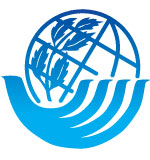NGOs split on ways to fight poverty

 August 21 2002, Johannesburg, South Africa (IPS) - Environmental and community activists remain deeply divided about how best to alleviate world poverty and protect the environment as they head into the Global Forum of the World Summit for Sustainable Development (WSSD).
August 21 2002, Johannesburg, South Africa (IPS) - Environmental and community activists remain deeply divided about how best to alleviate world poverty and protect the environment as they head into the Global Forum of the World Summit for Sustainable Development (WSSD).
Official UN Site : www.johannesburgsummit.org The forum is an opportunity for non-governmental and civil organizations from around the world to meet and air their plans on eradicating global poverty while protecting the environment and natural resources. With about 40,000 delegates expected to attend the gathering, it will be the largest of the WSSD meetings. The forum runs from this week to Sept. 4 in the South African city of Johannesburg. It is expected to submit a declaration to the heads of state at the summit to consider when they draw up the official political statement and plan of action. "It is early and very difficult to see if we will be able to reach agreement," says Victor Munnik, a policy analyst with the Civil Society Secretariat, which is charged with organizing the forum. "The immediate challenge is to overcome the physical fragmentation between delegates, and then see what of their differences are tactical -- and can be overcome -- and which are principled." Because of political differences and practical difficulties, different organizations have set up camp in different places. Right next to the venue for the UN-endorsed Global Forum, the Social Movements Indaba has its own meeting place. The Social Movements Indaba is a grouping of organizations that do not want anything to do with the official U.N. process as they believe it is dominated and controlled by governments and big business and will not be able to come up with solutions to sustainable development. They are planning their own meetings and protests. A bit farther down the road, the South African-based Landless People's Movement (LPM) has a site for those who want to focus on a single issue -- the right of ordinary people to have access to land. They are trying to keep both the Global Forum and the Social Movements Indaba at an arms' length to prevent them taking the focus off the land campaign. Sounding slightly bemused, Munnik appealed for "diversity in solidarity, and solidarity in diversity" and for organizations to compromise "as much as they can live with" so that the Global Forum could come up with a united, broadly supported political declaration. Munnik sees some chance of the diverse collection of non-governmental, environmental and community development organizations attending the summit reaching an agreement. He points out that environmental organizations as politically diverse as Greenpeace, the World Wildlife Fund and the Environmental Justice Network seem to be overcoming some of their differences ahead of the Global Forum. "They are working together in a way that I have not seen before," he comments. Important groupings like youth, women and indigenous peoples have been meeting ahead of the Global Forum to come up with positions that will reflect their common interests and concerns. These will be tabled at the forum for inclusion in its political declaration. The big issue, facing civil society at the Global Forum, is deciding if they can work with global political and financial institutions like the U.S.-dominated World Bank and International Monetary Fund (IMF). Then they have to find ways of defending existing agreements on the protection of the environment and the alleviation of poverty; and pushing for increases in international development aid and environmental protection standards. There are also divisions between those organizations who want the forum to rally to the cause of protecting natural resources, while others believe that the only way to protect the environment is to prioritize the social and economic development of communities. Community and environmental activists also point out that even if civil society manages to hammer out a broadly acceptable political declaration, it will likely demand more in terms of development and environmental protection than governments at the WSSD are going to concede. Despite divisions and the difficulties, World Conservation Union (IUCN) South African representative, Saliem Fakir says the Global Forum and other events being held around the WSSD will give activists a chance to debate issues in a way that the diplomatic protocols of the official meetings will not allow. "That alone makes the gathering vital", he said. Anthony Stoppard
August 2002 Anthony Stoppard is a correspondent with Inter Press Service, a global news resource faciliating south-south and south-north dialogue on important economic, social, environmental, and other issues. IPS is distributed by Global Information Network